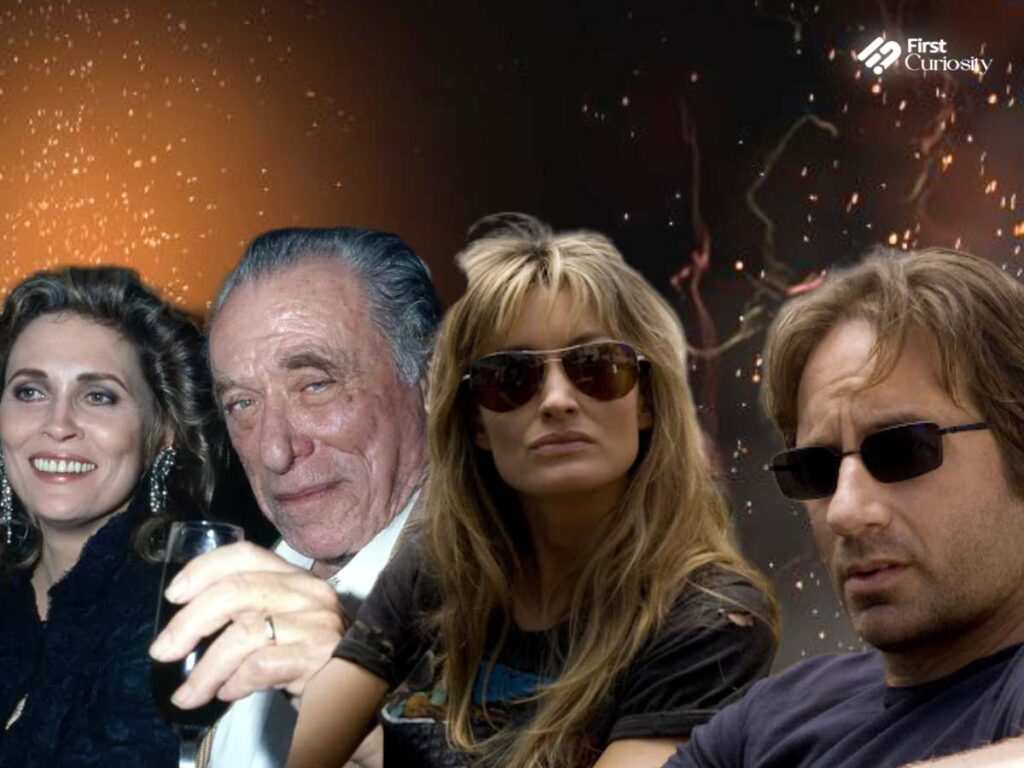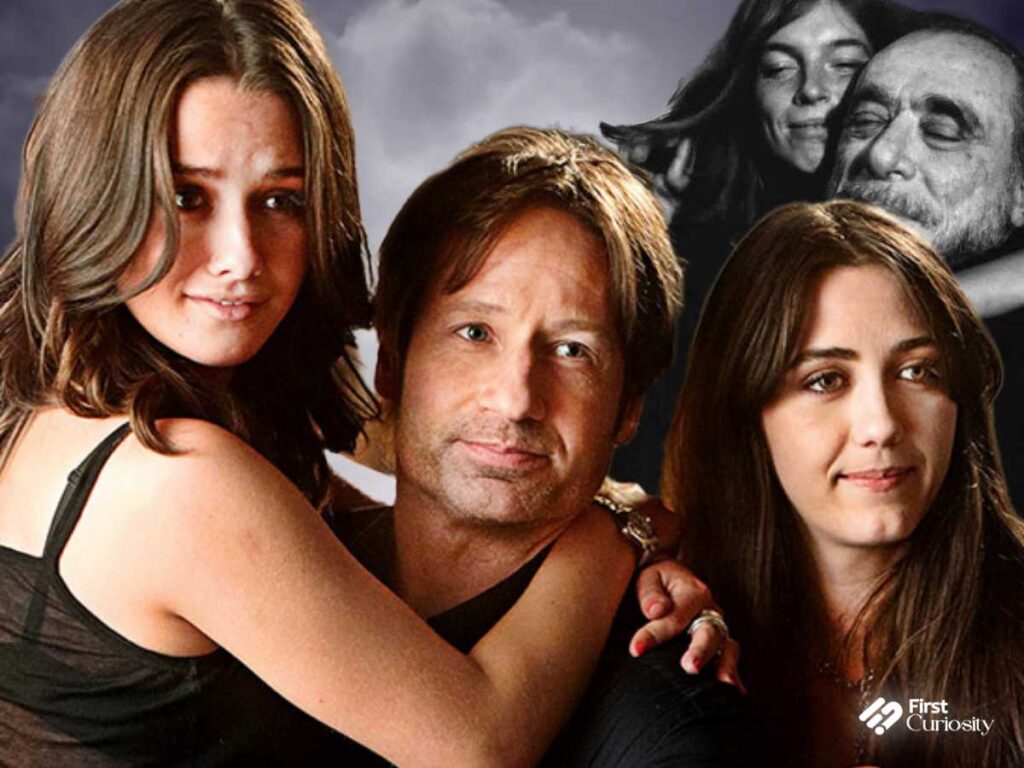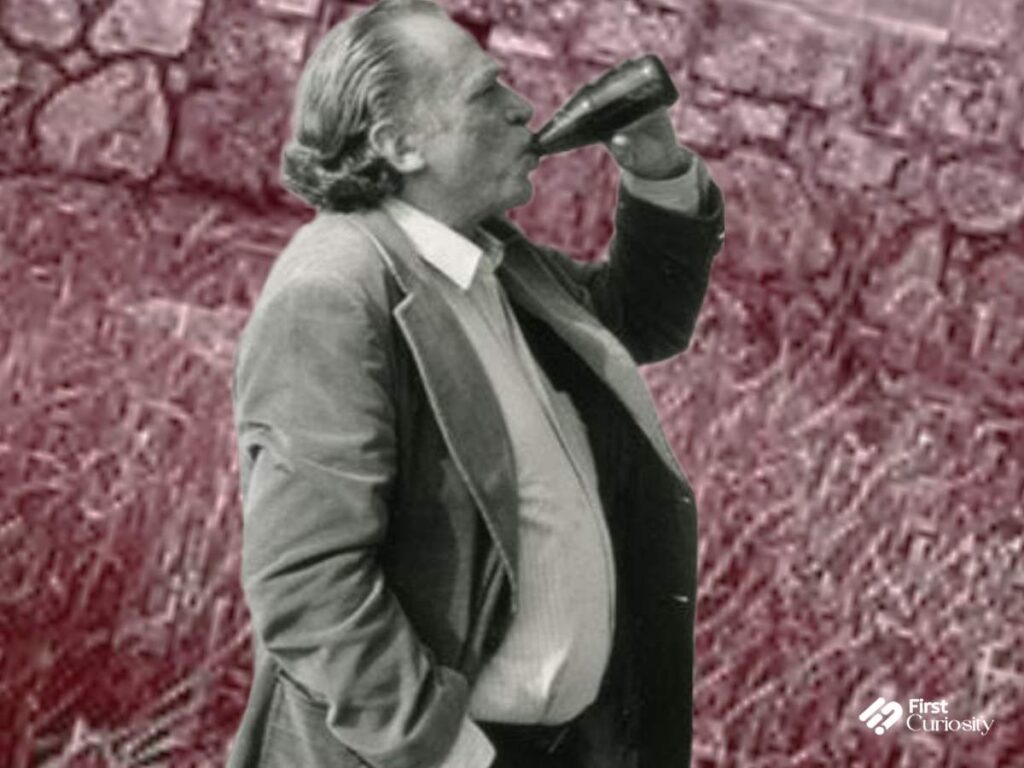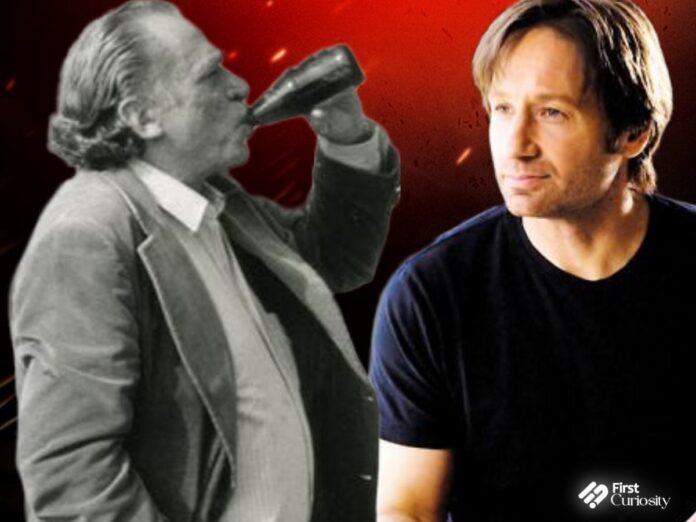‘Californication’ is where chaos meets creativity in a punch-packed cocktail of TV drama. 2007 was a year when TV wasn’t just TV, especially in the case of this comedy. It was a deep dive into the mind of a writer on the edge, something I can personally relate to. Hank Moody, the charmingly troubled hero of our story. The genius writer lost in the glitz and grime of Los Angeles, drunk games and girls of the Wild West.
Imagine if Holden ditched the East Coast winters for sunny L.A. and traded his fight ring angst for a beach boy job with a penchant for trouble. That’s Hank Moody in a nutshell—a man grappling with demons while surfing the waves of Hollywood’s excess. But here’s the kicker: beneath the surface of this fictional tale lies a question that keeps us hooked. Could Hank Moody be more than just a character? A lot of layers are there but don’t worry, I’ll peel back each one for you. So settle in your seats, we’re taking a ride through the blurred lines of reality and fiction in this cultural zeitgeist of mid-2000s television. A show where every episode is a nod to the rock ‘n’ roll lifestyle and a wink to the literary rebels still alive on Instagram blogs.
Related: Is ‘The Sympathizer’ Based On A True Story? Historical Context Of Vietnam War Explained
The Inspiration Behind ‘Californication’

‘Californication’ isn’t your typical true story, but it sure breathes with the spirit of reality. Fans often speculate that Tom Kapinos, the genius behind the series, drew inspiration from a tortured writer of the 1900s. Even in the sea of many, you can feel the agony of Charles Bukowski simmering painfully, could he be the tortured poet Hank Moody’s LA adventures are based on? Moody’s relentless pursuit of his artistic legacy (he’s trying to build) mirrors the struggles faced by many creatives though. Writers often have the tendency to get caught between genius and self-destruction, we have history to prove that true.
Now, let’s talk theories and there are many. First up you’ve got Lew Ashby, who seems like a modern-day Great Gatsby. Next up is Atticus Fetch, you’d know this one if you’ve read or watched, ‘To Kill a Mockingbird.’ These were character theories the real juice is that the series is based on Charles Bukowski’s ‘Women’, all speculations of course. Not like we can wake Bukowski from his grave and ask if approves of Hank. We’ll have to fight the sea of depressed teenagers to get to his stone first.
In case you missed: Is ‘A Gentleman In Moscow’ Based On A True Story?
Real-Life Hank Moody

Hank Moody—born and bred on the tough streets of New York City, and boy, does he carry that gritty, unapologetic New Yorker spirit with him all the way to sunny Southern California. Living it up in hedonistic Los Angeles, Hank dives headfirst into all things destructive. His most tempting vice–Women. Does the word remind you of a certain autobiographical novel? Same, and who is our charming Hank? An author. As a novelist battling that infamous writer’s block, he falls off the deep end in a hilarious direction.
Now, If you take out the hilarity from hilarious Hank Moody, you will get Henry Chinaksi, the character written by Bukowski for his autobiographical novel. Emphasize the word ‘autobiographical’ guys. This theory makes Hank Moody a modern-day incarnation of Charles Bukowski’s literary alter ego. Played to perfection by David Duchovny in ‘Californication’ we see too many signs to not find weight in this belief. Bukowski’s influence is very palpable in Moody’s unapologetic demeanor, his undying love for alcohol, and his unfiltered view of the world.
Why Charles Bukowski Would Cringe At Hanks Moody

Charles Bukowski was the kind of man who scoffed at societal niceties and reveled in the raw, unfiltered world of gritty prose. If he were alive to witness the polished portrayal of Hank Moody in ‘Californication,’ that too in his image. He’d likely raise an eyebrow—or maybe even recoil in disdain, the most likely thing he’ll do is curse the narrative with his metaphors. Bukowski’s writing dripped with raw emotion and searing honesty, far removed from the Hollywood gloss that permeates Moody’s world.
For Bukowski, writing was a brutal dance with reality, not a staged performance for ratings. Moody’s overflowing love for Hollywood antics would seem foreign to a man who found solace in unvarnished aspects of everyday existence. Apart from when it came to sharing a drink, I think Bukowski would go out of his way to avoid Moody.
You might also like to read:





